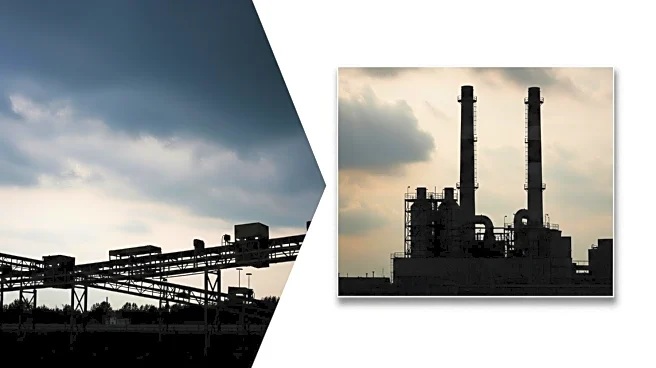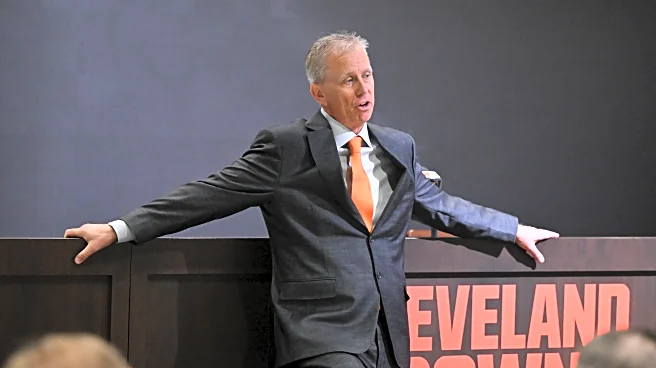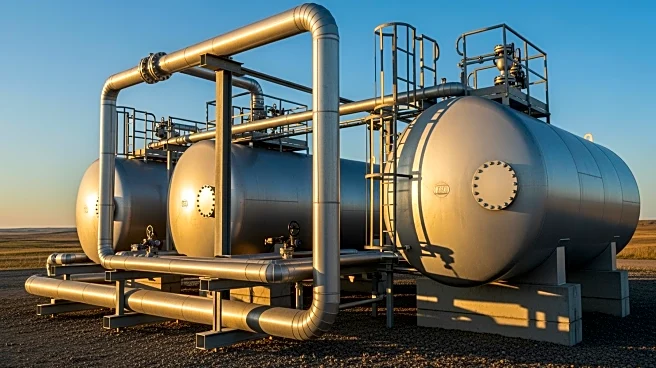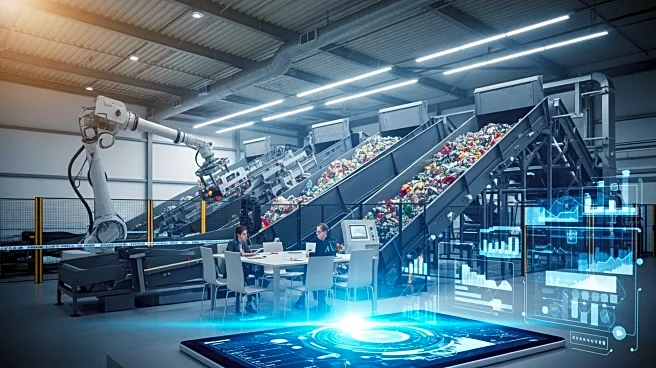What's Happening?
President Trump's high tariffs, intended to boost American manufacturing, have instead led to job losses in tariff-exposed industries such as manufacturing, construction, and transportation. According to Apollo Global's chief economist, Torsten Slok, these sectors have experienced negative payroll growth since the trade war began. The August jobs report shows a decline in manufacturing employment, with 78,000 fewer jobs compared to the previous year. The tariffs have created uncertainty, causing companies to reduce hiring and raising prices for U.S. manufacturers.
Why It's Important?
The job losses in tariff-exposed industries contribute to a broader slowdown in U.S. hiring, affecting economic growth. The uncertainty surrounding trade policies is paralyzing manufacturers and impacting consumer confidence. The administration's immigration crackdown is also affecting the supply of workers in industries like construction. These factors combined are leading to slower job growth and increased pessimism among Americans about their job prospects.
What's Next?
The administration's trade strategy and immigration policies will continue to influence the job market. Economists suggest that clarity on tariffs could lead to a rebound in hiring, but the current economic uncertainty poses challenges. The administration's tax cuts and deregulation policies may eventually boost construction and manufacturing jobs, but the immediate outlook remains uncertain.










